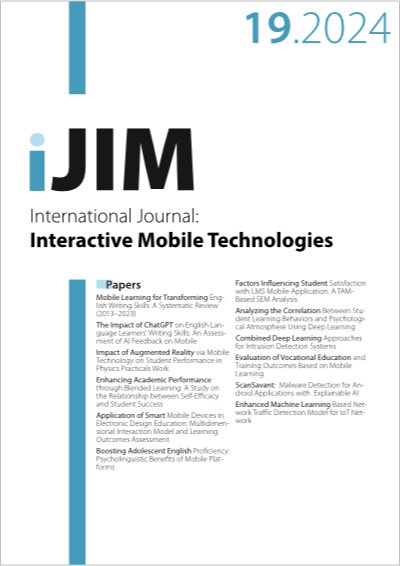Evaluation of Vocational Education and Training Outcomes Based on Mobile Learning
DOI:
https://doi.org/10.3991/ijim.v18i19.51575Keywords:
mobile learning, vocational education, time series, gated recurrent unit model, outcome evaluation, attention mechanismAbstract
With the rapid advancement of information technology (IT), mobile learning has gradually become a significant approach in vocational education and training. University students utilize mobile applications for learning, which not only enhances the flexibility and efficiency of their studies but also promotes the equitable distribution of educational resources. However, effectively evaluating the impact of these applications in vocational education and training remains an urgent issue to be addressed. Current study methods predominantly focus on the analysis of static data, which inadequately captures the dynamic changes in students’ learning behaviors. Additionally, traditional predictive models exhibit low accuracy and poor generalization capabilities when handling high-dimensional, nonlinear time-series data. This study proposes an evaluation method for vocational education and training outcomes based on an improved gated recurrent unit (GRU) model, which comprises three main components: decomposition of university students’ mobile application time-series data based on the variable dependence model (VDM), preprocessing of the mobile application data, and outcome evaluation using the improved GRU model. Incorporation of an attention mechanism enhances the predictive performance of the model, providing data support and a decision-making basis for educators and developers.
Downloads
Published
How to Cite
Issue
Section
License
Copyright (c) 2024 Nan Zhang (Submitter); Yanhua Yu

This work is licensed under a Creative Commons Attribution 4.0 International License.



